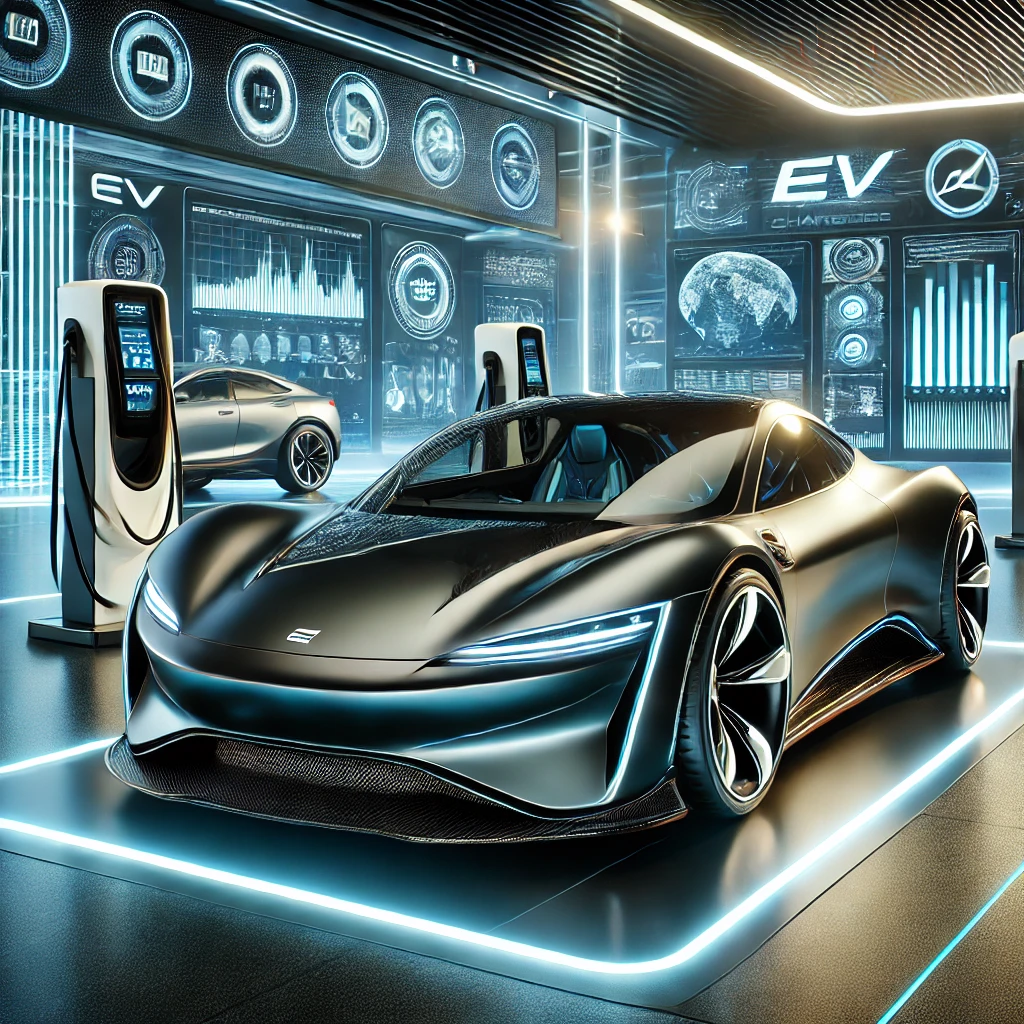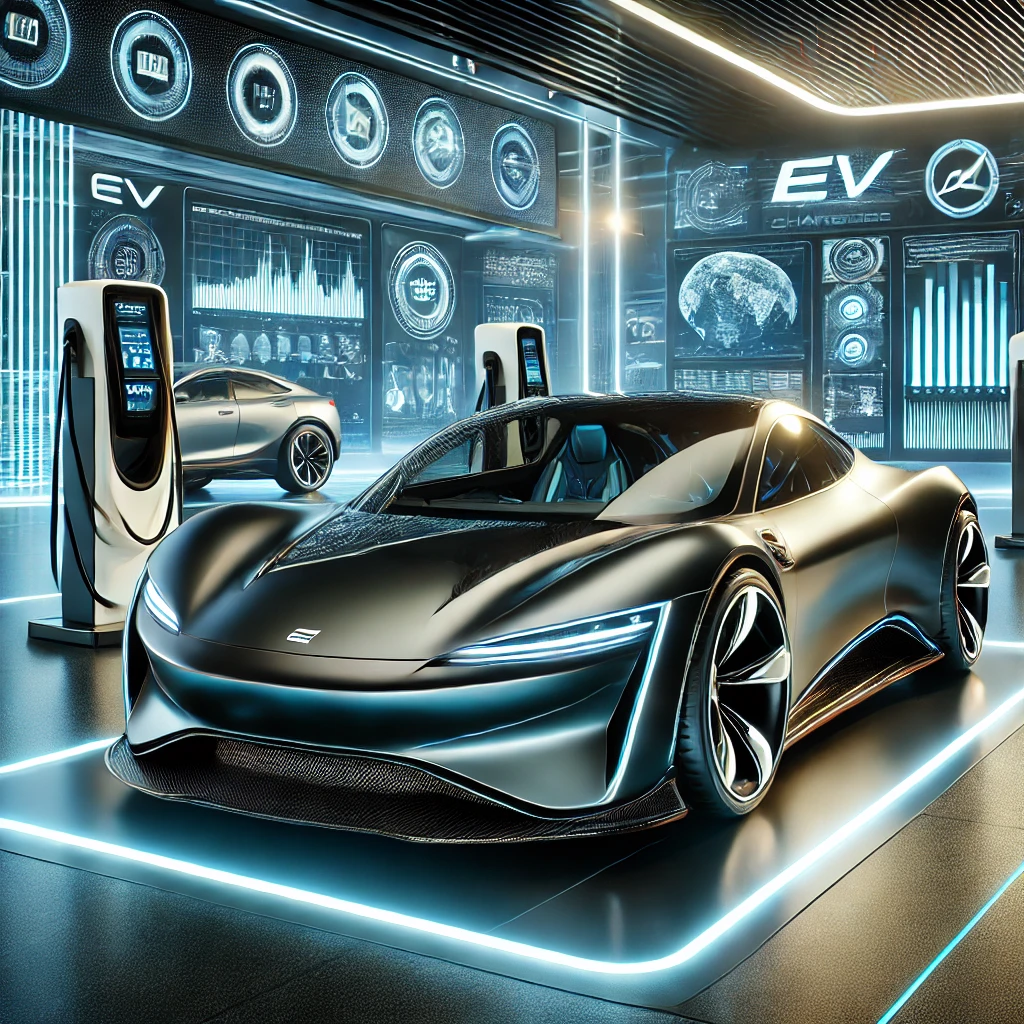
Choosing an electric sports car for the first time can feel overwhelming, especially with so many advanced options available. This guide will walk you through the essential factors to consider, from understanding the basic differences between electric and gasoline-powered sports cars to evaluating performance, maintenance, and cost. By the end, you’ll feel confident in making an informed purchase decision.
1. Essential Knowledge Before Choosing an Electric Sports Car
The Differences Between Electric Sports Cars and Gasoline Cars
Electric sports cars differ significantly from their gasoline-powered counterparts, primarily in their drivetrain. Electric models use battery-powered electric motors, while gasoline vehicles rely on internal combustion engines. This difference impacts performance, maintenance, and environmental considerations.
Electric sports cars deliver instant torque, providing rapid acceleration and smooth handling. Additionally, they are quieter and produce zero emissions, aligning with eco-conscious lifestyles. However, factors such as battery range and charging infrastructure may pose challenges for some users. Understanding these differences is key to setting realistic expectations for your purchase.
An Overview of How Electric Sports Cars Work
Electric sports cars operate using a high-capacity lithium-ion battery that powers one or more electric motors. These motors convert electrical energy into mechanical energy, propelling the car forward. This streamlined design reduces the number of moving parts, resulting in lower maintenance costs compared to traditional vehicles.
Innovative features such as regenerative braking, which recovers energy during deceleration, and advanced driver assistance systems (ADAS) enhance both efficiency and safety. These technologies make electric sports cars a cutting-edge choice for modern drivers.
Key Points to Consider for First-Time Buyers
When purchasing your first electric sports car, it’s crucial to match the vehicle to your driving habits. Consider these factors:
- Battery Range: Ensure the vehicle has sufficient range for your daily needs.
- Charging Options: Check for the availability of home charging solutions and public charging stations in your area.
- Brand Reputation: Choose manufacturers known for reliability and excellent customer service.
These considerations will help you avoid common mistakes and select a car that perfectly fits your lifestyle.
2. Recommended Electric Sports Cars for Beginners
Affordable Models to Get Started
For beginners, affordability often plays a key role in the decision-making process. Here are three budget-friendly models worth considering:
- Tesla Model 3: A versatile entry-level electric car with sports car-like acceleration and advanced features.
- Nissan Leaf e+: Offers a solid range and performance at an accessible price point.
- Chevrolet Bolt EV: Known for its spacious interior and impressive range for the price.
Each of these models balances performance and affordability, making them ideal for first-time buyers.
Popular Brands and Their Unique Features
Several brands stand out in the electric sports car market for beginners. For instance, Tesla is renowned for its technology-driven vehicles, while Porsche offers luxury and performance. Nissan provides reliability and affordability, and Chevrolet focuses on user-friendly design. Exploring these brands can help you narrow down the options to find the perfect fit.
Customer Reviews and Ratings
Before making a decision, take the time to read customer reviews and ratings. These provide real-world insights into the car’s performance, reliability, and ownership experience. Online forums and automotive review websites are excellent resources for gathering this information.
3. Performance Features to Evaluate
Battery Range and Charging Time
The range and charging time of an electric sports car are crucial considerations. For example, vehicles like the Tesla Model S offer an impressive range of over 400 miles, while others may provide shorter ranges suited for city driving. Charging infrastructure, both at home and in public, is also essential to evaluate.
Acceleration and Handling
Electric sports cars are known for their exceptional acceleration due to instant torque. Models like the Porsche Taycan Turbo S can go from 0 to 60 mph in under 3 seconds. Smooth handling and precision steering further enhance the driving experience, making these cars a joy to drive.
Safety Features
Safety is a priority, especially for first-time buyers. Look for features like automatic emergency braking, adaptive cruise control, and lane-keeping assistance. Brands such as Volvo and Tesla are particularly noted for their advanced safety technologies.
4. Cost and Maintenance Considerations
Understanding Overall Costs
Electric sports cars often have higher upfront costs but lower long-term expenses. Factors like reduced fuel costs, fewer maintenance needs, and government incentives can offset the initial investment.
Tax Credits and Incentives
Many countries offer tax credits and incentives for electric vehicle purchases. Research the available programs in your region to reduce the financial burden. For instance, in the United States, federal tax credits can save buyers up to $7,500.
Maintenance Tips
Electric sports cars require less maintenance than gasoline cars due to fewer moving parts. However, regular software updates and battery checks are essential to ensure optimal performance. Keeping your vehicle in top condition will prolong its lifespan.
5. Importance of Test Drives and Post-Purchase Support
Tips for a Successful Test Drive
During a test drive, focus on the car’s responsiveness, comfort, and features. Test various driving modes and assess how the car performs under different conditions. A thorough test drive will give you confidence in your choice.
Choosing Brands with Excellent Support
Post-purchase support is essential for a seamless ownership experience. Opt for brands with strong service networks and responsive customer support. Tesla, for instance, offers over-the-air software updates and mobile service options.
Building Community Connections
Joining an owner’s club or online community can provide valuable advice and support. These groups often share maintenance tips, modifications, and event information, enhancing your ownership experience.
Conclusion
Choosing your first electric sports car can be a rewarding experience with the right knowledge and preparation. By considering factors like performance, cost, and post-purchase support, you can find a vehicle that meets your needs. Take your time to research and test your options, and enjoy the journey toward a more sustainable and exhilarating driving experience.



Comment